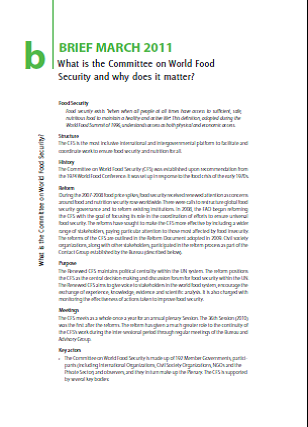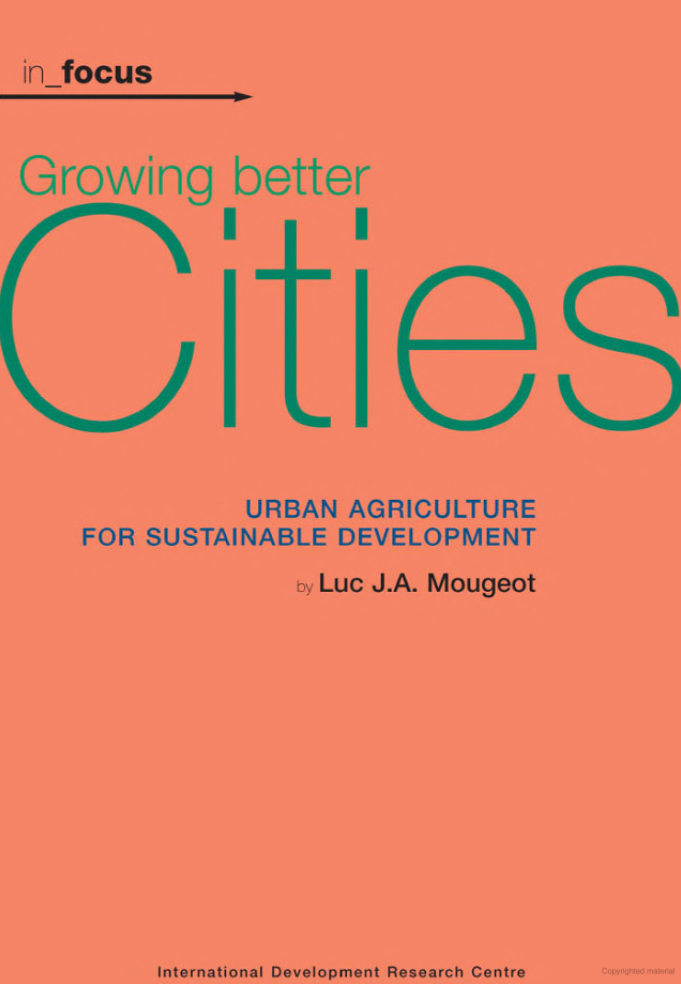What is the Committee on World Food Security and why does it matter?
This brief produced for the Dialogue Initiative on Large-Scale Land Acquisitions and their Alternatives provides an overview of the Committee on World Food Security (CFS), the most inclusive international and intergovernmental platform to facilitate and coordinate work to ensure food security and nutrition for all.
You can get involved in the CFS through the Civil Society Mechanism. Check out http://cso4cfs.org/ to connect with your constituency and sub-regional focal points.









